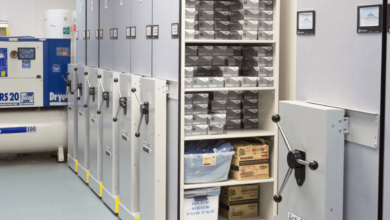Homeopathic Training: Education and Training for Homeopathy Practitioners

The field of homeopathy requires practitioners to undergo rigorous education and training that balances theoretical knowledge with practical application. With a variety of educational pathways available, including specialized programs and online courses, aspiring homeopaths can tailor their learning experiences to fit their unique circumstances. Furthermore, the significance of patient-centered care remains paramount, emphasizing the need for practitioners to understand the individual rather than merely addressing symptoms. As the landscape of certification programs evolves, questions arise about the adequacy of current standards in ensuring competent care. What implications does this have for the future of homeopathic practice?
Overview of Homeopathy
Understanding the principles of homeopathy is essential for practitioners seeking to provide holistic care.
The history and origins of homeopathy trace back to the late 18th century, founded by Samuel Hahnemann. Its core principles involve treating the individual, not just symptoms, and utilizing highly diluted substances to stimulate the body’s innate healing processes.
These practices emphasize a compassionate approach, fostering patient autonomy and empowerment.
Educational Pathways
The journey to becoming a proficient homeopathic practitioner involves a variety of educational pathways designed to equip individuals with the necessary knowledge and skills.
Many institutions focus on curriculum development that encompasses both theoretical and practical aspects of homeopathy.
Additionally, online courses provide flexible learning opportunities, making it easier for aspiring practitioners to pursue their passion while accommodating personal and professional commitments.
Also read: Homeopathic Tinctures: Liquid Extracts Used in Homeopathy
Certification Programs
For aspiring homeopathic practitioners, certification programs serve as a crucial step in validating their competence and expertise in the field.
These accredited programs often offer online courses, providing flexible learning opportunities that cater to diverse schedules.
Practical Training Experience
Practical training experience is a fundamental component of homeopathic education, allowing practitioners to apply theoretical knowledge in real-world settings.
This immersive training fosters essential clinical skills and enhances patient interaction, empowering practitioners to cultivate empathetic relationships with clients.
Also read: Homeopathic Tincture: What Is a Homeopathic Tincture?
Conclusion
In summary, homeopathic training fosters a holistic understanding of patient care, akin to nurturing a delicate garden where each individual’s needs are met with attention and compassion. Through various educational pathways and rigorous certification programs, practitioners are equipped to facilitate the body’s inherent healing abilities. Practical training experiences further enrich this knowledge, ensuring that graduates emerge as skilled healers, prepared to cultivate well-being in their clients while respecting the unique tapestry of each person’s health journey.





